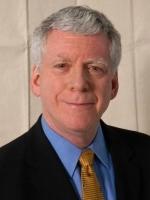The workshop can be delivered at a client location or virtually
Differentiate Your Consulting Solutions by
Leveraging Your Client’s Hidden Enablers
Add Requisite Tools to Your Consulting Practice
Even your best consulting solutions can suffer a slow, painful death if you ignore the hidden enablers – organization structure, capability levels, accountability framework. Regardless of your consulting domain, your solution’s success depends upon ensuring that your client’s structure, capability, and accountabilities are explicitly understood and managed. Whether you consult in strategy, technology, or process improvement, adding a Requisite Organization lens to your projects will give you a powerful diagnostic tool that will substantially improve your clients’ outcomes and your consulting success.
What is behind this?
Requisite Organization is a science-based system of methods and templates for achieving optimal structure, staffing, and management practices in an organization – the enablers to work well done. Attending the workshop will provide you with:
-
A precise language to discuss project complexity levels, project leader capability levels, and types of accountability and authority.
-
An understanding of the levels of complexity of work in a task or in a role.
-
An understanding of the levels of a person’s ability to manage complexity.
-
Requisite templates and methods for designing and managing cross-functional work.
How Can this Enhance My Consulting?
After the workshop, you will have the ability to:
-
Ensure your consulting team is well-matched to the complexity level of your client’s project and that cross-functional issues in the team are well managed.
-
Understand your client organization’s capability so your solutions can be intentionally designed to align with it.
-
Explicitly design and communicate the cross-functional aspects of your solution so it will succeed in your client’s organization.
-
Understand your client’s organization’s capability so that a practical implementation plan can be designed to align with it.
-
Contract for success so that the implementation team in your client’s organization has the needed authorities and personal capabilities.
Who Should Attend?
Which Consulting Domains Will Benefit?
-
Owners or managing directors of small and medium sized consulting firms
-
Partners, executives or senior consultants at larger consulting firms who are in charge of specific practice areas.
-
Internal change management consultants
- ● IT ● Management Consulting
- ● Leadership Training and Coaching
- ● Sales and Marketing ● Strategy
- ● Process Redesign ● Recruiting
- ● Compensation ● Executive Coaching
How Consulting Firm Executives are Using Requisite Organization Tools and Templates:
For our IT consulting group, the integration of RO concepts such as: role relationships, complexity of work, authority and accountability into a design life cycle methodology and a governance structure for large infrastructure deployment programs have provided some outstanding outcomes.
Alf Rock
Founder & President
Alkamind ConsultingForrest is an organizational transformation firm. We use RO insights to accelerate our clients’ achievement of their goals. We help them develop and implement strategy by optimizing organizational structure and clarifying role and by developing leadership and management ability.
Julian Chapman
Executive Vice-President, Consulting & Business Solutions
Forrest & Company LimitedWe are an IT services organization. RO gives us assessments, tools, and insights to help me create a more engaged and profitable workforce. From selection to management to succession planning, RO has given me a complete solution for our most important resource – Our People.
Amit Arora
Owner,
Miracle GroupAt The Covenant Group, our mission is to help entrepreneurs achieve and sustain peak performance. Our clients are financial advisors, lawyers, accountants and consultants. Typically, they do not have the knowledge or skills to build a business. RO enables them to build the organization they require to realize their potential.
Norm Trainor
C.E.O.
The Covenant Group
Comprehensive Course Components:
Pre-workshop
Workshop
Post -Workshop
Workshop Features:
-
-
Location
To be deternined
Workshop fees
Fee for an intact group at a client's site -- To be determined
Fee for an individual in a virtual group - To be determined
Agenda for One-day Workshop
- Course process
-
Participants take our on-line professional development course - 5 hours of e-learning modules
-
Complete a brief exercise
-
One-day, interactive seminar
-
Follow-up one-on-one teleconference to discuss next steps..
-
Rather than a lecture, this will be an interactive format where you will be working on your current issues, not case studies.
-
Exercises include:
-
Aligning a small consulting firm with the complexity of the work, to align properly with organizational clients
-
Applying RO to writing and selling a proposal
-
Applying RO to designing a solution for your client and designing its implementation.
-
Designing new products and services using RO concepts - principles
-
-
Review of key concepts: complexity of work, capacity to manage complexity, cross-functional role relationships
-
Application of issues of complexity to project design: exercise
-
Application of cross-functional role relationships to project design: exercise
-
Implications for implementation: brief exercise
-
Implications for your own organization: brief exercise
-
Set up for teleconference
-
Workshop leader
|
Dr. Herb Koplowitz is one of the world’s experts in Requisite Organization. His clients appreciate his ability to translate his deep understanding of the theory into practical solutions for complex problems. Herb works with organizations to: align structure to strategy, so each strategic goal is assigned to a role at the appropriate level; fit staffing to structure, ensuring that employees’ capabilities match the requirements of their roles; and train managers to develop the capabilities required to direct and support employees and to hold them accountable. Herb is a psychologist trained in organizational design, managerial practice and human capability. He holds a B.A. in mathematics and philosophy from Cornell University, a Ph. D. in psychology from the University of Massachusetts and registration as an organizational psychologist in Ontario. |





